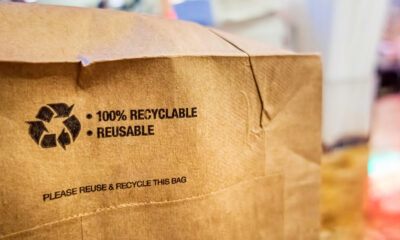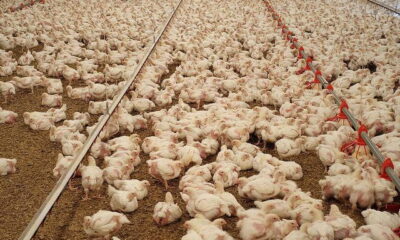

Environment
Farming to meet environmental challenges
The 2012 National Farmers Union conference focused on how farming can cope in drought conditions and why the environmental agenda must not be ignored.
Drought conditions in the UK could have a significant effect on farming, warned the president of the National Farmers Union (NFU), Peter Kendall, at the annual NFU conference. He said that the lack of rainfall could see a rise in food prices.
The 2012 National Farmers Union conference focused on how farming can cope in drought conditions and why the environmental agenda must not be ignored.
Drought conditions in the UK could have a significant effect on farming, warned the president of the National Farmers Union (NFU), Peter Kendall, at the annual NFU conference. He said that the lack of rainfall could see a rise in food prices.
Earlier this week, the Government called a drought summit meeting to discuss the prospect of droughts in some areas of the UK this year. Before this meeting, the NFU vice president, Gwyn Jones, said that farmers and growers were “extremely anxious” because of the forecasted drought conditions.
At the drought summit, Jones stressed the importance of giving priority to agricultural land because of food security. At the NFU conference, the environment secretary, Caroline Spelman, agreed.
Spelman spoke about the possibility of droughts becoming “the new norm” because of climate change. She also said that the UK should start looking at the best ways to make plants resistant to drought conditions.
The NFU conference warned that farmers can no longer ignore the environmental agenda, if they want to continue being competitive in their market. Guy Gagen, the National Farmers Union chief arable adviser, said, “Global companies are looking to be seen to be taking action, so corporate social responsibility is becoming a real driver in commercial markets.”
Gagen made the point that their customers would start suggesting that farmers and growers use certain brands of fertiliser, and it would become normal practice.
Arable farmer, Mark Leggott said, “We cannot bury our head in the sand about our customers’ ambitions … It is here now, it is live and it is going to become ever increasingly important to our businesses.”
Blue & Green Tomorrow have previously written about the importance that agriculture has in creating a sustainable economy. You can contribute by considering where you shop and by supporting local farmers. For advice, check our Make a Difference page, which showcases some good ethical shopping guides.
Related articles:


 Environment12 months ago
Environment12 months agoAre Polymer Banknotes: an Eco-Friendly Trend or a Groundswell?

 Features11 months ago
Features11 months agoEco-Friendly Cryptocurrencies: Sustainable Investment Choices

 Features12 months ago
Features12 months agoEco-Friendly Crypto Traders Must Find the Right Exchange

 Energy11 months ago
Energy11 months agoThe Growing Role of Solar Panels in Ireland’s Energy Future




























